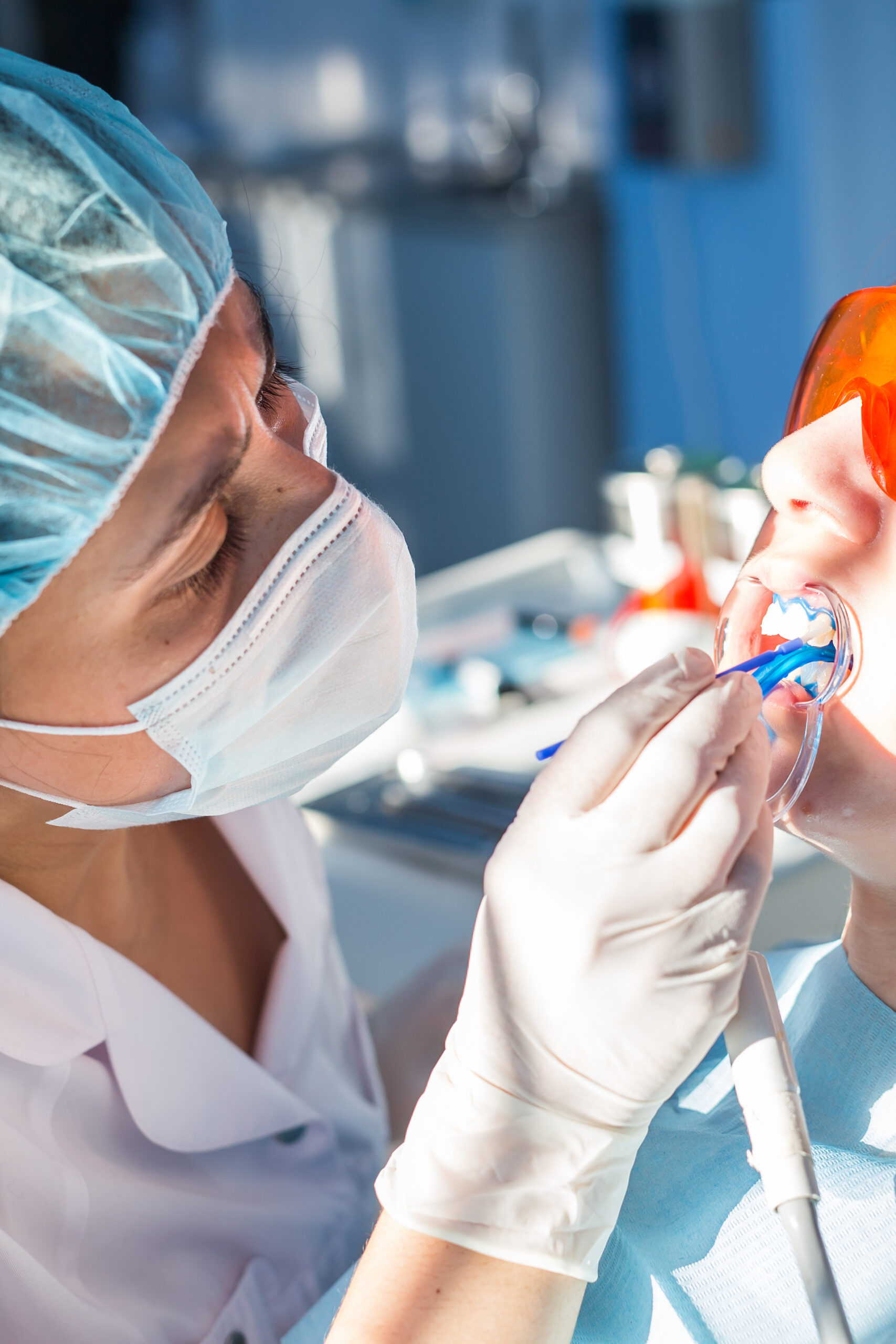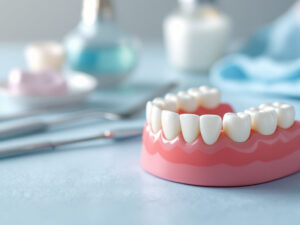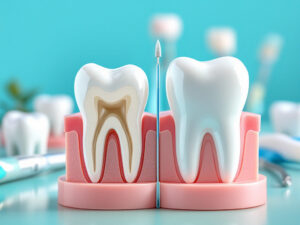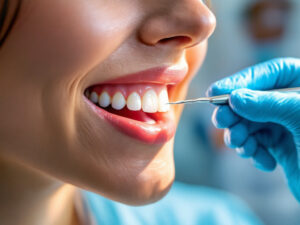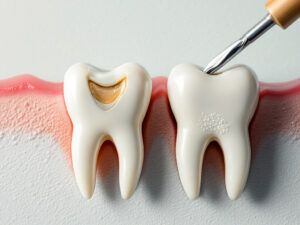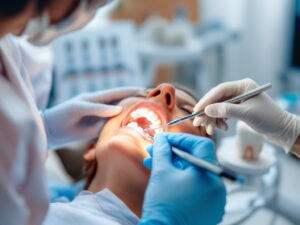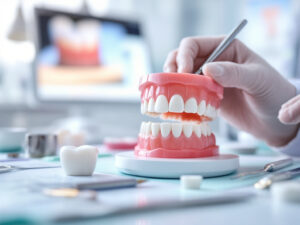Dental infections can have a significant impact on your overall health and wellbeing. By prioritizing prompt dental infection treatment, you protect yourself and your loved ones from pain, potential complications, and long-term oral health issues. At Cloninger Dentistry, we strive to provide the comprehensive care and support necessary for lasting recovery and total peace of mind. In this article, you will learn about the significance of early intervention, common signs of infection, key treatment options, effective prevention methods, and how our practice supports your family’s unique dental needs.
Recognize the importance of treatment
Addressing an oral infection is about more than relieving tooth pain. By taking that first step toward therapy, you defend against further complications and set the stage for a healthier future. Delaying intervention or hoping the infection will vanish on its own can lead to difficulties that affect your entire body. Understanding the urgency behind seeking professional help encourages you to act decisively when you notice symptoms.
Why early intervention matters
Early intervention allows you to avoid the worst outcomes of an untreated dental infection. When bacteria invade the tooth’s pulp through cavities or cracks, they can form painful abscesses. If left unaddressed, these abscesses can move beyond the tooth’s root and into surrounding tissues. Untreated infections may even spread to the jaw, sinuses, or bloodstream, potentially causing severe systemic complications. According to the Mayo Clinic, a tooth abscess can quickly transform from a pocket of pus into a life-threatening problem if ignored (Mayo Clinic).
Timely treatment with a trusted dental professional reduces the risks of advancing infection. By acting early, you can address the root cause, preserve more of the natural tooth structure, and minimize pain. In many instances, swift action also cuts down on time and cost, because smaller or contained infections often require less invasive solutions.
Potential complications if untreated
Dental infections were historically among the leading causes of death, partly due to a lack of modern medicine and antibiotics (NCBI Bookshelf). Even in today’s world of advanced pharmaceuticals, ignoring an infection poses serious risks. Bacteria and toxins from local infections can travel into the bloodstream and trigger systemic inflammation or sepsis. People with compromised immune systems or chronic conditions have an especially high risk of escalating complications.
Ongoing tooth decay also erodes your comfort and confidence. Lingering infection often leads to persistent pain, swelling, difficulty chewing, and disrupted sleep. These factors, combined with the social anxiety of dealing with persistent oral discomfort, can impact your overall quality of life. Seeking professional dental infection treatment as soon as you notice unusual symptoms is the key to avoiding these dangerous and painful outcomes.
Spot the signs of infection
Recognizing common infection indicators helps you respond quickly. Dental problems are typically easier to manage when caught early, so monitoring your mouth regularly is crucial. If a tooth infection progresses, the warning signs often increase in intensity. Staying vigilant about your oral health ensures you can seek care promptly and protect yourself from severe complications.
Common warning signs
- Persistent tooth pain: Constant throbbing or sharp discomfort, particularly if it worsens at night, may indicate an infection in the tooth’s pulp.
- Increased sensitivity: Heightened sensitivity to hot, cold, or sugary substances suggests underlying decay or pulp irritation.
- Swelling and redness: Inflamed gums, cheeks, or jaw areas indicate your body is reacting to infection.
- Foul taste or odor: Drainage from an abscess can create a bitter taste and foul odor in your mouth.
- Fever and fatigue: When the body mobilizes resources to fight an infection, you can experience elevated temperature, tiredness, or swollen lymph nodes.
If any of these signs persist for more than a few days, or if you experience sudden changes like swelling of the jaw or difficulty swallowing, it is time to book an urgent appointment with a dentist. For any acute symptoms, especially significant discomfort, seeking emergency dental care can be critical.
Specific clues for tooth abscesses
A tooth abscess is a localized collection of pus that forms when bacteria gain access to the tooth’s inner chamber. The Mayo Clinic confirms that abscesses typically develop due to untreated cavities, injuries, or prior dental work (Mayo Clinic). Watch for the following:
- A pimple-like bump on the gum near the infected tooth.
- Rapid swelling in the jaw or cheek.
- Severe, throbbing toothache that radiates to the ear or neck.
- Sensitivity when biting down.
Not all infections produce prominent swelling, so do not wait for visible signs before contacting a professional. Regular checkups, combined with professional teeth cleaning to remove plaque buildup and identify potential trouble spots, are the best ways to catch problems early and prevent them from escalating.
Explore effective treatment options
Modern dentistry offers a variety of solutions for dental infections. Your dentist will typically craft a personalized approach based on the infection’s severity and your overall health. Here at Cloninger Dentistry, we offer several treatments that can stop an infection and restore your oral health. Every patient benefits from individualized plans with the supportive environment necessary to ease stress, encourage healing, and promote long-term wellness.
Antibiotics and their role
Dentists often prescribe antibiotics to help control bacterial spread, but antibiotics alone will not eliminate the source of infection inside the tooth. The Cleveland Clinic notes that they are most effective when combined with necessary dental procedures like draining an abscess or performing a root canal therapy (Cleveland Clinic). Common antibiotic choices include amoxicillin, metronidazole, and clindamycin, though your dentist will consider your medical history to determine the safest option.
Following the prescribed antibiotic course to completion is vital, even if your symptoms improve. Cutting the regimen short can allow residual bacteria to survive and build resistance. Keep in mind that while antibiotics help curb infection, definitive treatment to address the tooth’s structural issues is essential to achieving full recovery.
Draining and cleaning abscesses
When an abscess is present, your dentist may need to drain the collected pus. This step relieves pressure, reduces discomfort, and provides direct access to the infected area. Many times, a thorough cleaning of the site with antibacterial solutions follows. By removing debris and disinfecting inside the tooth and under the gums, your dentist sets the stage for healing.
For advanced decay, root canal therapy is a common solution. Your dentist or endodontic specialist carefully removes infected pulp from the tooth’s interior, cleans and shapes the canal, and seals it to prevent re-infection. A subsequent dental crown placement helps protect the treated tooth from future damage.
Tooth extraction when necessary
Sometimes, an infection is too extensive to salvage the tooth with standard procedures. In these instances, a tooth extraction service is the most effective way to eliminate persistent infection and protect healthy teeth from bacteria spread. Depending on the tooth’s position and complexity, this might be a simple tooth extraction or a surgical tooth extraction if the structure is deeply impacted.
After extraction, we can guide you through restorative services such as a dental bridge placement or snap in denture service. These reconstructive options preserve your bite strength and prevent neighboring teeth from shifting into the open space.
Holistic approach to recovery
In addition to direct procedures, an effective treatment plan can include guidance on nutrition, stress management, and quality sleep. Good hydration, gentle toothbrushing, and an aligned diet all help your body fight infection and recover faster. By focusing on these foundational aspects of health, you promote a supportive environment where your body can heal effectively.
At Cloninger Dentistry, we believe in tailored interventions that reflect every aspect of your lifestyle. This comprehensive care model recognizes that no two individuals have the exact same oral needs. From the moment you step into our office, you can expect empathetic professionals, detailed explanations, and personalized recommendations to foster long-term recovery.
Adopt proven prevention strategies
While timely dental infection treatment is crucial when problems arise, prevention remains the ideal first line of defense. Protecting your teeth and gums from harmful bacteria helps you avoid the pain, expense, and stress of dealing with abscesses or invasive procedures. An ongoing commitment to routine dental hygiene, regular checkups, and healthy lifestyle habits ensures you significantly reduce the risk of future infection.
Daily hygiene essentials
- Brush thoroughly: Use fluoride toothpaste and a soft-bristled toothbrush at least twice a day. Concentrate on gently cleaning each surface, including the back teeth and gumline.
- Floss carefully: Flossing daily removes debris and plaque that toothbrush bristles miss, lowering your chances of gum inflammation and decay.
- Rinse wisely: Antibacterial mouthwashes may help reduce bacteria. If your dentist recommends a specific mouth rinse, follow guidelines on swishing and spitting to maximize effectiveness.
Taking these steps consistently promotes the supportive environment that keeps your teeth and gums healthy. Since plaque buildup leads to cavities and gum issues, focusing on diligent oral hygiene is an everyday way to safeguard your smile.
Routine professional visits
Scheduling regular appointments with your dentist is also an integral part of preventive care. During your routine dental checkup, professionals can detect early signs of cavities, gum disease, or tooth fractures. Intervening at the earliest stage often saves you from more intense pain down the line.
Along with a basic exam, a deep cleaning can remove tartar in those hard-to-reach areas. If you have children, beginning pediatric dental care early ensures a strong foundation for their oral hygiene habits. Additional protective measures, like a fluoride treatment, may also help strengthen tooth enamel and reduce the risk of decay.
Lifestyle influences
Your daily nutrition and habits shape your oral ecosystem, too. Sugary or acidic foods fuel bacteria, leading to erosion of protective enamel. Consuming a balanced diet full of fruits, vegetables, and calcium-rich choices helps fortify your teeth. Proper hydration is also essential for producing enough saliva, a natural defense against harmful microbes.
Beyond diet, lifestyle factors such as alcohol intake and tobacco use impose added strain on your oral health, weakening your immune responses and increasing the likelihood of infection. Planning routine oral cancer screening may be beneficial if you are at a higher risk due to smoking or other factors.
Prevention is a continuous process. By adopting a diligent approach to oral hygiene, scheduling professional visits, and making healthy lifestyle choices, you create an environment that is far less hospitable to bacteria. As a result, you are better equipped to evade chronic dental concerns.
Choose Cloninger Dentistry for care
Selecting the right dental provider is an essential step on your path to optimal oral health. Your experience should encompass empathy, expertise, and trust. From your first consultation to follow-up visits, you deserve a team that understands your concerns and responds with comprehensive solutions. Cloninger Dentistry strives to meet and exceed your expectations across every aspect of treatment.
Comprehensive family and cosmetic services
Our practice takes pride in offering a broad range of procedures that cater to diverse dental needs. Whether you require painless cavity filling or advanced therapies for complex cases, we stand ready to help. Each service is tailored to your specific condition, ensuring you receive individualized care to address unique challenges.
If you are looking for a refreshed smile, we also provide cosmetic dentistry options such as porcelain veneers or shade-matched crowns. Combining functionality with aesthetics, these treatments help restore your confidence. Meanwhile, if you or a loved one needs urgent care for sudden problems like a cracked tooth or persistent discomfort, our emergency dental care options deliver prompt, impactful relief.
Support necessary for lasting recovery
Just as men’s rehabilitation centers focus on building a supportive environment for those in recovery, our commitment to your well-being rests on empathy and partnership. We understand that dental visits may trigger anxiety for some individuals. Our staff works diligently to create a calming atmosphere, explaining each step and offering reassurance at every turn.
Our approach also involves thorough planning for post-procedure care. Once you receive the right therapy for an infection, we continue monitoring your progress, adjusting treatment regimens as necessary to maintain lasting results. We provide easy-to-understand guidance on at-home care, diet adjustments, and follow-up visits, ensuring healing proceeds smoothly.
Emphasis on safety and convenience
Modern dentistry relies on advanced imaging and precision techniques to give you the best outcomes. At Cloninger Dentistry, we use digital xray imaging and 3d imaging dental diagnostics to inspect your teeth, analyze complex cases, and plan treatment strategies. These technologies enable greater accuracy in diagnosing and resolving infections rapidly.
We also simplify administrative processes. As an insurance friendly dental practice, we strive to streamline benefits for qualified procedures. Our flexible financing dental plans, in conjunction with a written treatment estimate, help you manage costs effectively. We know how critical it is to feel comfortable with both the financial and medical aspects of your treatment.
When you choose a provider who respects your needs, invests in modern technology, and emphasizes patient-centric care, you pave the way for a strong, stable smile for decades to come.
Frequently asked questions answered
Below are some of the most common questions people have about dental infection, its treatments, and preventative strategies. Knowing these details can help you make informed decisions and feel more confident about seeking care when you need it.
-
What exactly is a dental abscess?
A dental abscess is a pocket of pus resulting from a bacterial infection within or around a tooth. It occurs when harmful bacteria penetrate the tooth’s protective layers, often due to untreated cavities or cracks. The resulting pus accumulation can cause sharp pain, swelling, and difficulty chewing. Prompt toothache pain relief with professional intervention ensures you correctly address the root cause. -
Can antibiotics alone fix my tooth infection?
Antibiotics are valuable in reducing bacterial presence, but they rarely resolve the deeper cause of an infection by themselves. Dentists need to remove infected tissue and seal the tooth to prevent recurrence. This might involve draining an abscess, performing root canal therapy, or opting for a tooth extraction service if the damage is beyond repair. Antibiotics function best when used alongside these necessary procedures. -
How do I know if I need an extraction or a root canal?
The decision depends on the extent of decay, structural damage to the tooth, and whether a root canal can effectively save it. During a thorough exam, including intraoral camera examination, we can visualize the tooth’s internal condition. If the infection has not destroyed the majority of the tooth, a root canal is typically preferred. If the damage is too extensive, extraction may be safer. -
What should I expect during recovery?
Recovery times vary based on the procedure and your personal healing process. Generally, you can expect mild soreness for a few days post-treatment. Following your dentist’s instructions about diet, rest, and oral care quickens healing. In some cases, you might need a follow-up appointment to evaluate your progress and ensure the infection has fully resolved. -
How can I prevent future infections?
Maintaining excellent oral hygiene lowers your chance of facing another infection. Regular brushing, flossing, and rinsing reduce plaque accumulation, while routine dental checkup appointments catch early signs of decay or damage. Limiting high-sugar foods, staying hydrated, and stopping smoking also help fortify teeth against bacterial threats.
When it comes to protecting your smile and your health, having an expert by your side makes all the difference. Dental infections can escalate quickly, but they are manageable with proper care. By taking advantage of modern diagnostic tools, proven interventions, and a welcoming environment, you ensure the support necessary for lasting recovery.
Cloninger Dentistry stands ready to guide you in safeguarding your oral health for the long haul. From timely dental infection treatment to routine preventive measures, we offer a full spectrum of family and cosmetic services. Our mission is to deliver attentive, compassionate care that resonates with your individualized needs. When you place your trust in a dedicated practice like ours, you make a worthy investment in your wellbeing, ensuring that your smile—and your overall health—stay vibrant for years to come.

